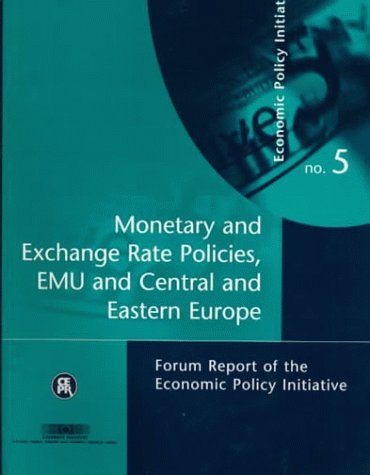Economic Policy Initiative S.
1 primary work
Book 5
Monetary and Exchange Rate Policies, EMU and Central and Eastern Europe
by Laszlo Halpern, Charles Wyplosz, and David K.H. Begg
Published 1 July 1999
The continuing global crisis, in which countries on several continents have experienced banking crisis and speculative attacks on their exchange rates, reinforces the need for Europe's transition economies to find a robust strategy for macroeconomic policy in the period leading up to accession and in preparation for joining EMU. This report examines three of the issues that need to be resolved along the way. First, as transformation continues, how should policy-makers think about the actual and the desirable evolution of the real exchange rate in transition economies? Second, what nominal anchor should be adopted? Third, to what extent must any credible monetary policy be underpinned by sound fiscal policy? Implicit in all these questions is the appropriate speed of disinflation, tradeoffs between fiscal prudence and adequate government expenditure on infrastructure and regulatory capacity, and implications for capital flows and the vulnerability of the banking system.
